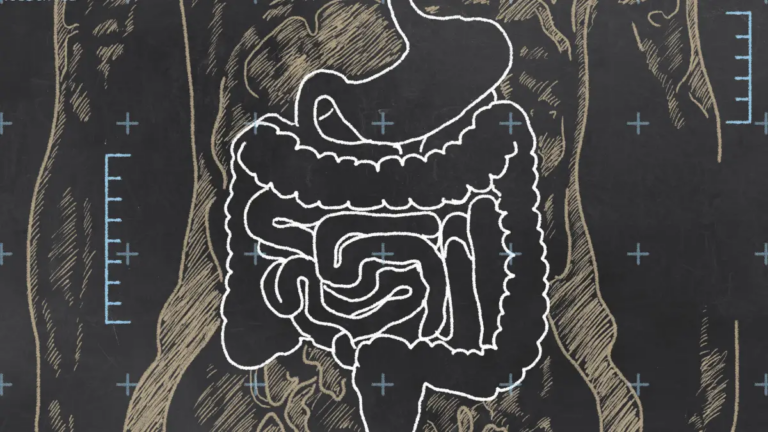The World Health Organization (WHO) has declared loneliness a global public health concern, equating its health impact to smoking 15 cigarettes a day. This loneliness epidemic has reached unprecedented levels, affecting both physical and mental health worldwide.
This growing issue is not confined to a single region or demographic. Loneliness transcends borders, cultures, and age groups, impacting individuals in both developed and developing nations. The COVID-19 pandemic exacerbated social isolation, bringing the problem into sharper focus. According to Mpemba, “social isolation knows no age or boundaries,” making it clear that the global community must come together to find solutions for this urgent problem.
The Global Loneliness Crisis: An Equal Opportunity Threat
Loneliness is not confined to any specific region or demographic. Contrary to the common belief that loneliness primarily affects older adults in high-income countries, it is a pervasive issue that impacts people across all age groups and regions of the world.
In fact, the World Health Organization (WHO) has revealed that one in four older adults experiences social isolation globally, with similar rates in both developed and developing countries. This highlights the universal nature of the problem, which does not discriminate based on geography or socioeconomic status.
The loneliness epidemic has particularly affected vulnerable populations, such as those living in conflict-ridden areas or regions facing economic challenges. In Africa, for example, a continent with a predominately young population, high levels of unemployment, political instability, and the ongoing climate crisis have exacerbated social isolation among the youth. Adolescents, already grappling with identity and societal pressures, are increasingly reporting feelings of loneliness. Research estimates suggest that up to 15% of adolescents experience loneliness, though this figure is likely underestimated due to the stigma associated with admitting to social isolation.
It is not just the elderly and youth who are affected; social isolation also takes a toll on adults, particularly those in the workforce. Feeling unsupported or disconnected in professional environments can lead to job dissatisfaction, reduced performance, and even poorer economic outcomes. The WHO recognizes that the lack of social connection in the workplace can have significant long-term consequences, further widening the gap in productivity and well-being.
The COVID-19 pandemic magnified these issues across the globe. Social distancing measures and lockdowns led to an unprecedented increase in isolation, creating a ripple effect that highlighted just how fragile human connections can be. With reduced opportunities for in-person interaction, many people turned to digital platforms for connection, but these substitutes often fell short in providing the emotional support needed to combat loneliness.

Health Impacts: A Growing List of Risks
The health risks associated with loneliness extend far beyond feelings of sadness or emotional isolation—they impact both mental and physical health in profound ways. Research has demonstrated that loneliness can be as deadly as chronic physical conditions. The World Health Organization (WHO) equates the health risks of chronic loneliness to smoking 15 cigarettes a day, highlighting its serious impact on mortality. Individuals who experience loneliness over extended periods are at a significantly increased risk of developing cardiovascular diseases, including heart attacks and strokes, as well as mental health disorders like depression and anxiety.
For older adults, loneliness increases the likelihood of cognitive decline, including conditions like dementia. In fact, studies indicate that socially isolated older adults are 50% more likely to develop dementia compared to those who maintain strong social ties. The loneliness epidemic also increases the risk of premature death, with research showing that socially disconnected individuals have a 30% higher chance of dying early compared to their more socially active counterparts.
The impact of loneliness on mental health is similarly alarming. In younger populations, particularly adolescents, loneliness has been linked to higher rates of depression and anxiety, which can persist into adulthood if not addressed. Adolescents who feel socially isolated are more likely to drop out of school and face challenges in maintaining healthy relationships later in life. They also experience lower job satisfaction, which has long-term implications for both their career and overall well-being.
The mental health implications don’t end there. Individuals who suffer from chronic loneliness are more likely to engage in unhealthy coping mechanisms, such as substance abuse or overeating, further compounding the health risks associated with social isolation. Studies have also shown a strong correlation between loneliness and sleep disturbances, which can affect everything from cognitive function to emotional regulation. These cascading health issues underline the urgency of addressing loneliness as a public health crisis.
Given the growing list of health risks tied to loneliness, the WHO and other global organizations are working to implement strategies that foster social connection. Addressing loneliness is not just about improving mental well-being; it’s about protecting people from a wide range of serious health conditions that threaten both quality of life and longevity.

Youth and Loneliness: A Silent Struggle
While loneliness is often associated with older adults, it is becoming an increasingly pressing issue among younger populations, particularly adolescents and young adults. Recent studies have shown that between 5% and 15% of adolescents worldwide report experiencing feelings of loneliness, although these figures may be underestimates.
For many young people, the digital age has brought both opportunities for connection and a paradoxical sense of isolation. Despite constant access to social media and communication platforms, the depth of genuine, meaningful relationships has decreased, leaving many young people feeling emotionally disconnected.
For students, feeling isolated in school often leads to academic difficulties, lower engagement, and even dropping out of educational institutions. Young adults who enter the workforce also report feelings of disconnection, leading to reduced job satisfaction and poorer overall performance. The sense of being unsupported in both educational and professional environments can stunt personal and career development, creating a cycle of loneliness that becomes harder to break.
Moreover, the effects of loneliness on youth can extend beyond emotional well-being, having a significant impact on physical health. Research has shown that loneliness can weaken the immune system, making individuals more susceptible to illness. For adolescents, this can mean not only mental health struggles but also an increased likelihood of chronic health issues as they grow older. The effects of loneliness in youth, if not addressed early on, can lead to long-term health consequences that persist into adulthood.

My Personal RX on Combating Loneliness
As a doctor, addressing the loneliness epidemic requires a holistic approach that not only tackles emotional well-being but also promotes physical and mental health. Here are some strategies I recommend to combat loneliness and improve overall wellness:
- Prioritize Social Connections: Whether through family, friends, or community activities, make a conscious effort to maintain regular social interactions. Loneliness thrives in isolation, so surrounding yourself with supportive people is essential.
- Embrace Physical Activity: Regular exercise has proven mental health benefits and can help reduce feelings of loneliness by boosting endorphins and promoting social engagement through group activities or sports.
- Support Your Body with Magnesium: Incorporating magnesium into your daily routine can help support mental and physical well-being. Magnesium Essentials provides three highly absorbed forms of magnesium to ensure your body gets the macromineral it needs to reduce stress and improve mood.
- Practice Mindfulness and Meditation: These techniques can help reduce stress and anxiety, which often accompany feelings of loneliness. Mindfulness encourages you to be present and connected with yourself, which can foster emotional resilience.
- Improve Gut Health to Support Mental Health: There’s a strong connection between gut and brain health. By improving your digestive health, you can directly influence your mental state. I recommend reading my latest book Heal Your Gut, Save Your Brain to explore this link and adopt a holistic approach to enhancing both gut health and mental well-being.
- Join Support Groups: Whether online or in-person, support groups offer a safe space to share your feelings, learn from others, and build a community with those experiencing similar challenges.
- Volunteer: Helping others can provide a sense of purpose and connection. Volunteering offers a great opportunity to meet new people and foster meaningful relationships.
- Limit Social Media Use: While digital platforms can connect us, too much screen time can exacerbate feelings of isolation. Set healthy boundaries with your social media use to prevent disconnection from real-life interactions.
- Seek Professional Help: If loneliness is severely affecting your mental health, it’s important to seek support from a mental health professional. Therapy can offer tailored strategies to help you manage feelings of isolation.
- Stay Engaged in Learning: Keep your mind active by learning new skills or exploring hobbies. Whether it’s picking up a new book, like Gut Brain Book, or taking a class, staying intellectually stimulated can enhance your emotional well-being.
Sources:
- WHO Commission on Social Connection. (2023, November 15). https://www.who.int/groups/commission-on-social-connection
- eClinicalMedicine, N. (2023). The epidemic of loneliness. EClinicalMedicine, 66, 102395. https://doi.org/10.1016/j.eclinm.2023.102395
- Social isolation and loneliness increase the risk of death from heart attack, stroke. (n.d.). American Heart Association. https://newsroom.heart.org/news/social-isolation-and-loneliness-increase-the-risk-of-death-from-heart-attack-stroke











 Subscribe to Ask Dr. Nandi YouTube Channel
Subscribe to Ask Dr. Nandi YouTube Channel









